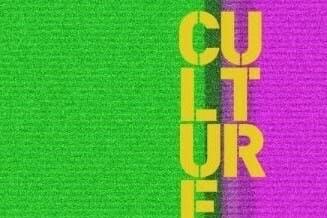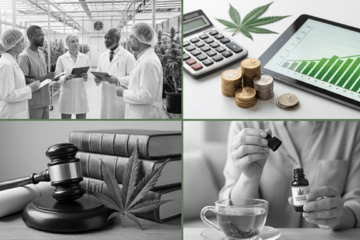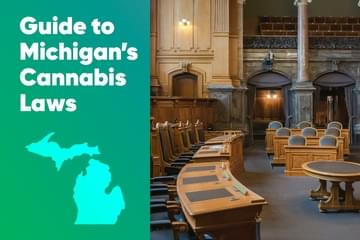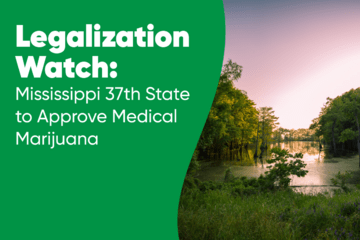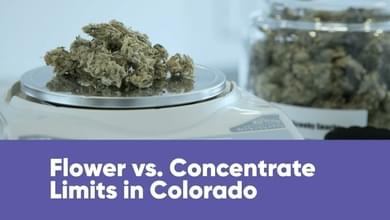
Flower vs. Concentrate Limits in Colorado: Everything You Need to Know
Published on 8/5/22
Sometimes, being a stoner requires more math than you might think. Not only do you have to calculate ratios like the quantity of THC compared to CBD in particular strains, but you also have to be aware of how many cannabis products you can purchase once you walk into a dispensary. The state of Colorado has created new legislation that affects the quantities of cannabis concentrates (also known affectionately as dabs) you can buy. This new Colorado concentrates law went into effect with relatively little fanfare; however, as in all cases of cannabis, ignorance of the law is not justification for breaking it. What are the new recreational limits on concentrates, and how does this affect your dabbing hobby?
Colorado Laws
With the full legalization of cannabis in 2012, Colorado weed laws were some of the most liberal in the nation, making it a tourist haven and a significant industry epicenter. Anyone with a valid driver's license (even a non-Colorado driver's license) can purchase up to one ounce of cannabis flower from a dispensary daily, with no limits on the strain type.
However, Colorado cannabis laws for concentrates have never been as generous as laws for flowers. Recreational cannabis users could only buy eight grams of concentrates, meaning that you are legally allowed to buy three times as many flowers as concentrate. While concentrates will get you far higher than regular bud, this may come as a shock for someone hoping to stock up on Colorado weed dabs, hash, or shatter. The limits are also stricter for medical cannabis users.
Medical and Recreational
Medical cannabis is often subject to different rules or regulations than recreational cannabis. In this case, however, the Colorado medical card limits 2022 law for concentrates matches the quantity available for recreational use at the same eight grams per day. This law only applies to medical cannabis concentrates, and it's worth remembering that some (but not all) medical strains have lower levels of THC but higher levels of CBD. You do not necessarily experience the same high as recreational concentrates.
Age and Law
The Colorado med rules 2022 change also limits the quantity of cannabis concentrates available based on age. While those 21 and older are limited to eight grams of concentrates per day, medical cannabis customers are limited to just two grams per day. Depending on your usage, this can be anywhere between "more than enough" and "not enough." How it will affect the medicinal cannabis community remains to be seen.
The passing of the Colorado weed limit law reflects uncertainty about the age of people consuming very high potency marijuana products. Stories of schoolteachers confiscating vape pens or parents dealing with their kids flipping out over high-potency concentrates have muddled the broader success stories of legalization and cannabis use by younger persons. Pressure on lawmakers to limit the number of concentrates available to more youthful users has resulted in new changes to dispensary policies. Additionally, the state of Colorado is trying more earnestly to track the purchase of cannabis products so that teenagers cannot simply go to another dispensary and stock up on products at multiple stores.
Choosing a Number
How do lawmakers and policy experts decide which numbers are which? The short answer is that they often do not. Health experts criticize states like Colorado for failing to address concerns over high-potency cannabis. While the total number of young cannabis users has remained mostly the same, the quantity of cannabis consumed has risen sharply. It is, after all, an excellent time to be a stoner: everything from high-tech dab rigs to fast-acting edibles makes it easier to get your buzz on.
However, the impact of smoking high-potency cannabis, or using products like concentrate, remains unclear. While studies have not definitively linked cannabis with psychological harm, the evidence does link very potent cannabis use with psychiatric issues like schizophrenia. THC toxification is a real thing with real consequences, meaning that too much of a good time can result in harm.
Some individuals and groups are trying to limit the production and sale of mega-potent cannabis products. One group, Blue Rising Together, seeks to cap the quantity of THC in cannabis products at 15%, making it roughly "mid-grade" according to most dispensary levels. Founder Dawn Reinfeld says, "As we look nationally to legalize marijuana, we feel like we have to tell the truth in Colorado about what has worked and what is not working." As the state receives more and more severe cases of poison control and hospitalization, it may be necessary for further revisions to the laws.









